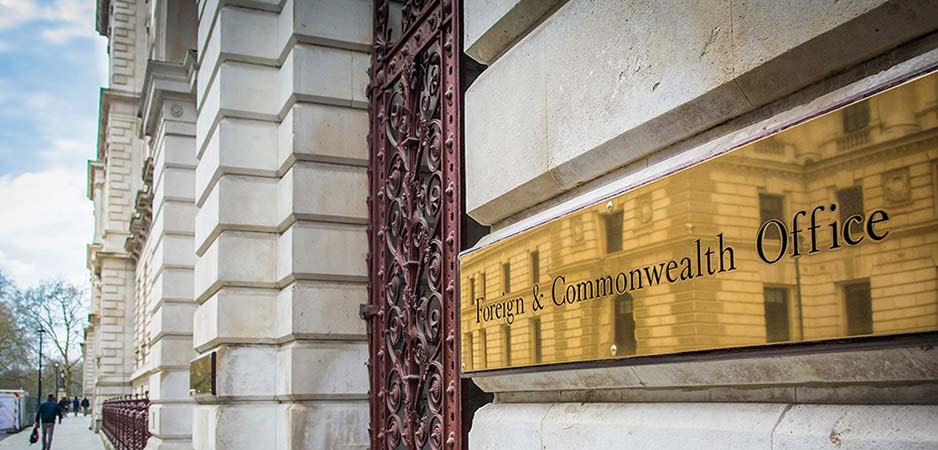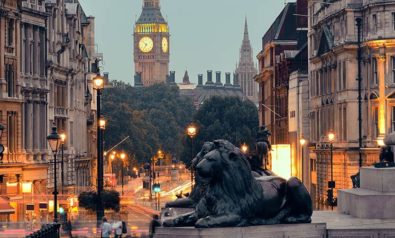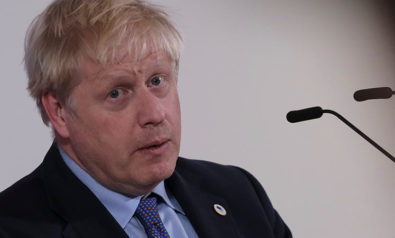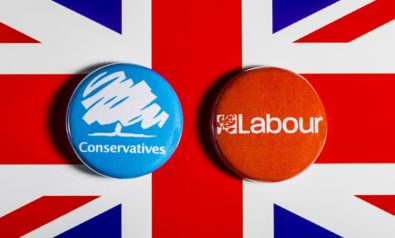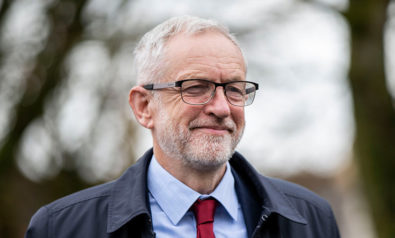In the frenzy and fury of yet another UK election that whirls and swirls around Brexit, our politicians are dancing in a conga line of counter-accusations, misinformation and outright lies. Savvy political pundits and sage pollsters assess and debate the direction of travel of the conga line. And guess what? It is pretty much all over the place. There’s “hard Brexit” and “soft Brexit,” and “no Brexit,” trade deals that can be done in no time, in some time or never at all. There’s a National Health Service that’s up for sale or not for sale. And here am I, thinking, But what about foreign policy? And what about the region I am most interested in? What about the Middle East?
360° Context: Britain Faces a Historic Election
Maybe it is because I am an immigrant myself, or maybe it’s that I am just a weird foreign policy nerd, but I would like to hear what our politicians think about what is going on in Egypt right now, where 60,000 prisoners of conscience are jailed in appalling conditions and where a president, ousted in a 2013 coup, died in June during a trial on espionage charges. As a UN human rights panel noted on November 8, Mohammed Morsi was held in solitary confinement for six years, forced to sleep on a concrete floor and denied treatment for his diabetes and high blood pressure. The report went on to say that because of the denial of medical treatment, President Morsi “progressively lost the vision in his left eye, had recurrent diabetic comas and fainted repeatedly.”
Agnes Callamard, the UN’s special rapporteur on extrajudicial killings and a lead author of the report, wrote that “The authorities were warned repeatedly that Dr. Morsi’s prison conditions would gradually undermine his health to the point of killing him. There is no evidence they acted to address these concerns, even though the consequences were foreseeable.” The report concluded that “Dr. Morsi’s death after enduring those conditions could amount to a State-sanctioned arbitrary killing.” Note: a state-sanctioned arbitrary killing of the first and only democratically elected president in Egypt’s history. Any thoughts on that from our politicians?
I would like to know what steps Britain’s new government will take to work toward ending the war in Yemen. The statistics tell an awful story: nearly 100,000 dead, 4,500 instances where civilians have been directly targeted — the Saudi-led coalition being responsible for two-thirds of this and the rebel Houthis the rest; 13 million Yemeni civilians facing starvation; critical infrastructure such as hospitals, schools and electricity plants destroyed in a war that is into its fifth year.
Have our politicians conveniently forgotten the support that Britain has given the Saudis? As Arron Merat wrote in a recent Guardian article, “Every day Yemen is hit by British bombs — dropped by British planes that are flown by British-trained pilots and maintained and prepared inside Saudi Arabia by thousands of British contractors.” So yes, I would like to hear from the party leaders what role the UK could play in pushing forward a peace initiative.
I might also want to know what those vying to form a government feel about the remarkable protests that have brought millions of young Arabs into the streets in Algeria, Iraq and Lebanon. They are protesting for an end to corruption. They are sick and tired of old sectarian politics. They want an end to the repression. The UK didn’t do much in the last Arab Spring save stand by the dictators and abandon the protesters. Any thoughts on fresh approaches? I didn’t think so.
And we are still happy — very happy — to do business with the Saudis, whose crown prince, Mohammed bin Salman, ordered the killing of the journalist Jamal Khashoggi. This is a man who routinely jails anyone even remotely suspected of not being loyal to his arbitrary, cruel and dictatorial rule. Oh, and will we continue in our contented way to do business with the United Arab Emirates who detained and tortured a British student, Matthew Hedges, and who have sentenced the distinguished human rights advocate Ahmed Mansoor to 10 years in prison? Of course we will!
And as the Iranian authorities carry out their ruthless assault on protesters who are being hit with the double whammy of a corrupt and brutal regime and the campaign of relentless sanctions imposed by the United States, where are we on that nuclear deal? Do we think the Trump approach is working? Do we know what happens to the deal? Do we even care? I’d like those questionS put to each and every party leader.
I’d like to know what they make of Turkey’s incursion into northern Syria, of the support that outside forces are giving a renegade general in the Libyan Civil War, or how we can support Tunisia’s fragile democracy. I would love to hear their thoughts on the so-called “deal of the century.” Do they really think that Jared Kushner’s bully’s plan will end the conflict between the Israelis and the Palestinians? There are a lot of answers I’d like to hear, but the questions are not being asked. A note to my UK media colleagues covering the election: It is not too late to start asking.
We are told that everything will be sorted out once we just get past that damn Brexit barrier. But surely we, the humble voters, deserve to know what sort of foreign policy those who hope to form a government will have and how our government behaves in the world and in a region as crucial to global peace and security as the Middle East.
The views expressed in this article are the author’s own and do not necessarily reflect Fair Observer’s editorial policy.
Support Fair Observer
We rely on your support for our independence, diversity and quality.
For more than 10 years, Fair Observer has been free, fair and independent. No billionaire owns us, no advertisers control us. We are a reader-supported nonprofit. Unlike many other publications, we keep our content free for readers regardless of where they live or whether they can afford to pay. We have no paywalls and no ads.
In the post-truth era of fake news, echo chambers and filter bubbles, we publish a plurality of perspectives from around the world. Anyone can publish with us, but everyone goes through a rigorous editorial process. So, you get fact-checked, well-reasoned content instead of noise.
We publish 2,500+ voices from 90+ countries. We also conduct education and training programs
on subjects ranging from digital media and journalism to writing and critical thinking. This
doesn’t come cheap. Servers, editors, trainers and web developers cost
money.
Please consider supporting us on a regular basis as a recurring donor or a
sustaining member.
Will you support FO’s journalism?
We rely on your support for our independence, diversity and quality.


